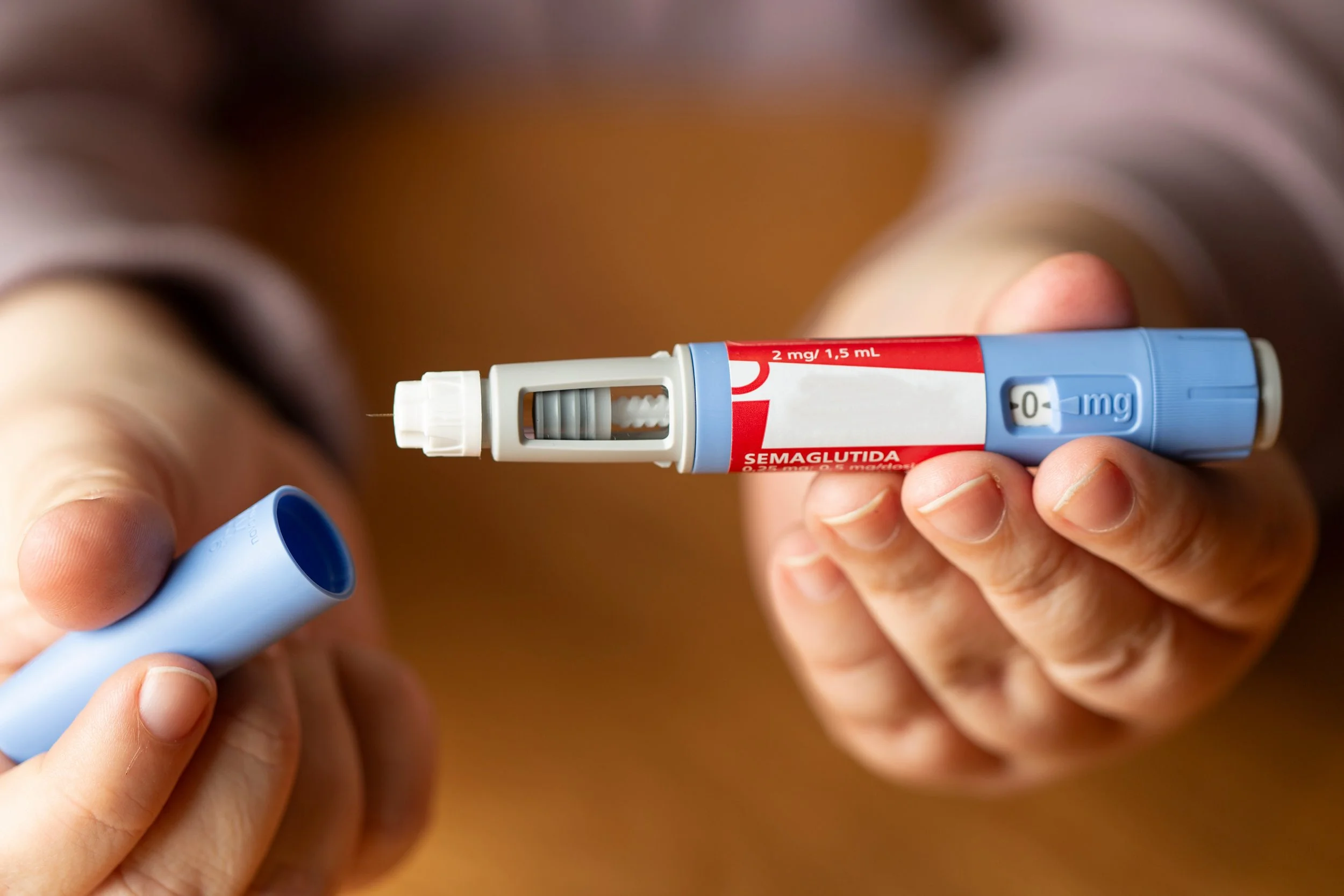Ozempic: Miracle or Fad?
Are you on a diet with a deadline? There’s nothing like an upcoming wedding, vacation or high school reunion to motivate weight loss, but there’s a trap in that motivation too. If the deadline is too close, the need to lose weight fast can seem more important than the need to lose weight safely. And that’s when fad diets can look irresistible.
In all of their reincarnations, fad diets promise an easier way to lose weight and usually a faster way as well. Remember the grapefruit diet, which claimed to use a magical ingredient in that fruit to flush out the fat? Or the cabbage diet? Or the eggs and wine diet? No, those didn’t work either but you can read all about them (plus many more) at this article from Taste Magazine. Those diets were weird but mostly harmless.
Tragically the diets that relied on miracle drugs often weren’t harmless. In the mid-90s doctors discovered a combination of fenfluramine, an appetite depressant, and dexfenfluramine, an amphetamine, could accelerate weight loss, and the combo, known as fen-phen, became hugely popular. The New York Times reported an estimated six million Americans took the drug combo, not knowing that when combined the two drugs could cause fatal heart valve issues. Many died and eventually fen-phen was banned.
But not all fad diets are dangerous, right? And if a drug has been approved by the FDA, then it must be safe? It’s important to remember that the two drugs combined into fen-phen were both FDA approved for use, although not for weight loss. The combo was also eventually approved by the FDA for the new use but the vote was narrow, with five of the eleven board members being unpersuaded that the risks of obesity outweighed the risks of a drug combo which had shown signs of negative heart health impacts during short-term studies.
Today’s miracle drug is semaglutide, a treatment intended for and approved for type 2 diabetes. It is sold under several brand names, including Ozempic and Wegovy. It works by regulating appetite, which can reduce food intake, and blind studies have shown it can boost weight loss. It is intended for those with a BMI of 30 or greater or those with a weight-related ailment and a BMI of 27 or greater. It’s all the rage in Hollywood and you may know of someone who is taking the drug for weight loss. The drug is undergoing a with real world test and widespread use may not reveal critical concerns, but it does currently present several issues:
According to the FDA, prescribing information for Wegovy includes a warning about a potential risk of thyroid C-cell tumors.
The FDA also warns of common side effects of nausea, diarrhea, constipation, headache, indigestion, hypoglycemia in patients with type 2 diabetes, gastroenteritis and acid reflux.
In October the FDA added a warning to labeling after multiple reports of intestinal blockages following Ozempic use.
Increased use of semaglutide for weight loss has created a shortage of the drug availability for the treatment of Type 2 diabetes, its original intended use. As Type 2 diabetes management is vital to patients who require the medication, a shortage of the drug can be an immediate threat to patient health.
The need to meet increasing demand for semaglutide has presented another potential health risk in the form of compounded drugs. In March 2023, NBC reported that Tik Tok videos were leading users to compounding pharmacies. According to NBC, the manufacturer was not providing the ingredient directly to pharmacies so it is difficult to determine their sourcing of the drug. NBC quotes a pharmacist, who does not provide the compound, as suggesting the compound could be created from semaglutide sodium, “a cheaper and modified version of the compound that’s intended for research use only.” Neither pharmacy compounds or semaglutide sodium are FDA approved.
Some have asked whether Professional Weight Management will prescribe Ozempic as part of our weight loss program. The answer at this time is that, in light of the emerging health concerns associated with Ozempic use, our advising physician believes the potential liability of prescribing the drug—and the possible risk to our patients—prohibits its addition to our offerings. While our plans are doctor supervised, the decision to use Ozempic should be made under the advice of a primary physician who has access to all of your health records and its use monitored by that physician.
The bottom line on this new miracle drug is that it may, in fact, be a miracle. But whether that miracle is right for you depends on your personal health history, your confidence in the studies currently available, and your ability to maintain a commitment to healthy eating. No miracle drug can overcome the nightly snack food binge that returns as soon as the drugs are gone. Combining a miracle drug with a plan that teaches you how to create a healthy relationship with eating, one that doesn’t just curb your hunger but also changes your lifestyle, can give you your best shot at maintaining your weight loss. So while we will not be prescribing Ozempic, we welcome you to start your own Professional Weight Management plan while taking your doctor prescribed Ozempic.
You may have read recently that Oprah Winfrey is taking Ozempic and plans to use it as a maintenance tool. That is her choice to make, but the words that sadden us from her People interview are that being called “Dumpy, Frumpy and Downright Lumpy” on the cover of another magazine made her feel “shamed”. Nobody should feel shame for their weight. Oprah is a beautiful woman. All of our patients are beautiful too. Your worth is never measured on your scales.
Whether you choose to follow our Professional Weight Management plans with or without your physician prescribed weight loss drug, we’re waiting to show you how amazing you really are.

